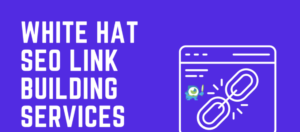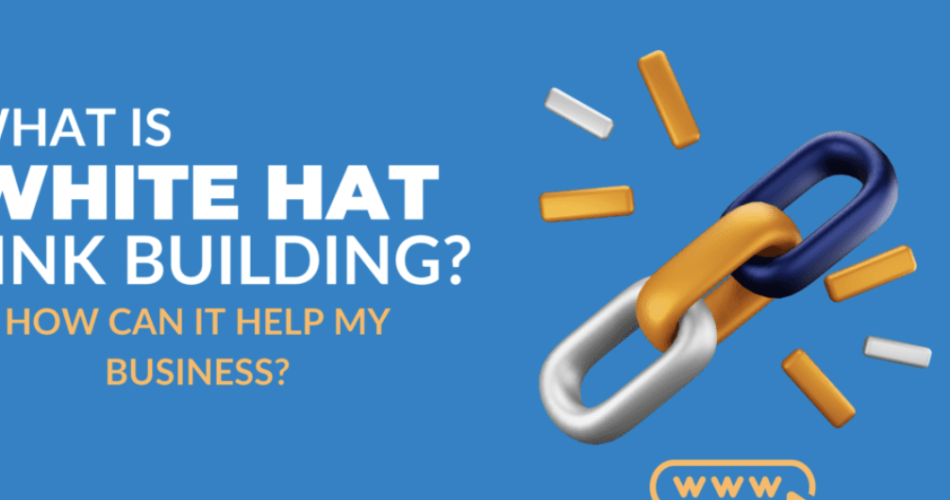In the ever-evolving landscape of search engine optimization (SEO), the importance of quality backlinks cannot be overstated. White hat SEO link building is a fundamental strategy that can help businesses and websites establish a strong online presence and achieve sustainable rankings in search engine results. This comprehensive guide will delve into the intricacies of white hat link building, equipping you with the knowledge and strategies to build a solid foundation for long-term success.

white hat seo link building
Contents
- 1 Understanding the Importance of Quality Backlinks
- 2 The Difference Between White Hat and Black Hat SEO Link Building
- 3 Common Misconceptions About Link Building
- 4 How to Conduct Effective Keyword Research for Link Building
- 5 Identifying High-Quality Websites for Link Building Opportunities
- 6 Outreach Strategies for Acquiring Backlinks
- 7 Guest Blogging as a White Hat SEO Link Building Technique
- 8 Creating Linkable Assets to Attract Natural Backlinks
- 9 Tracking and Measuring the Success of Your White Hat SEO Link Building Efforts
- 10 White Hat SEO Link Building Tools and Resources
- 11 Case Studies of Successful White Hat SEO Link Building Campaigns
- 12 Avoiding Common Pitfalls and Penalties in Link Building
- 13 Conclusion: Building a Sustainable Foundation for Long-Term Rankings
Understanding the Importance of Quality Backlinks
Backlinks, or incoming links to a website, are a crucial ranking factor for search engines. Quality backlinks signal to search engines that your content is valuable, trustworthy, and relevant, ultimately improving your website’s visibility and authority. By focusing on white hat link building techniques, you can cultivate a diverse and high-quality backlink profile that will bolster your search engine rankings and drive more targeted traffic to your website.
The Difference Between White Hat and Black Hat SEO Link Building
White hat SEO link building refers to the ethical and sustainable practices of acquiring backlinks, while black hat link building involves manipulative and deceptive tactics that can result in severe penalties from search engines. White hat methods focus on creating valuable content, building genuine relationships with other websites, and earning links through natural, authentic means. In contrast, black hat techniques, such as link farming, link buying, and automated link generation, are considered spammy and can lead to long-term damage to your website’s search engine visibility.
Common Misconceptions About Link Building
One common misconception about link building is that it is a one-time task. In reality, effective link building is an ongoing process that requires consistent effort and a strategic approach. Another misconception is that link building is solely about quantity, when in fact, the quality of the backlinks is far more important. Additionally, some believe that link building is only relevant for new websites, but in truth, established websites also need to maintain and grow their backlink profiles to remain competitive in their respective niches.
How to Conduct Effective Keyword Research for Link Building
Keyword research is the foundation of any successful link building campaign. By identifying the right keywords and phrases that your target audience is searching for, you can tailor your content and outreach efforts to attract the most relevant and valuable backlinks. Utilize tools like Google Keyword Planner, SEMrush, and Ahrefs to uncover high-volume, low-competition keywords that align with your business goals and the user intent of your website.
Identifying High-Quality Websites for Link Building Opportunities
Not all websites are created equal when it comes to link building. To maximize the impact of your efforts, you need to identify high-quality websites that are relevant to your niche and have a strong online presence. Look for websites with a good domain authority, high-quality content, and a diverse backlink profile. Utilize tools like Moz’s Open Site Explorer, Ahrefs, and Majestic to analyze the metrics and quality of potential linking partners.
Outreach Strategies for Acquiring Backlinks
Effective outreach is the key to securing high-quality backlinks. Develop a personalized and authentic approach to connecting with website owners, influencers, and industry peers. Offer valuable content, such as guest blog posts, infographics, or research studies, that can benefit their audience. Leverage your existing relationships and networks to explore mutually beneficial link exchange opportunities. Maintain a professional and courteous tone throughout the outreach process to build lasting partnerships.
Guest Blogging as a White Hat SEO Link Building Technique
Guest blogging is a powerful white hat link building strategy that allows you to showcase your expertise, reach new audiences, and acquire high-quality backlinks. By contributing valuable, relevant content to reputable industry blogs, you can not only earn backlinks but also establish your brand as a thought leader in your niche. When executing a guest blogging campaign, focus on quality over quantity, and ensure that your content aligns with the host website’s audience and editorial guidelines.
Creating Linkable Assets to Attract Natural Backlinks
Developing “linkable assets” is a proactive approach to white hat link building. These are pieces of content, such as in-depth guides, data-driven studies, or interactive tools, that are inherently valuable and shareable, attracting backlinks from other websites organically. By creating high-quality, informative, and visually appealing content, you can position your website as a valuable resource and earn backlinks without actively reaching out to other websites.
Tracking and Measuring the Success of Your White Hat SEO Link Building Efforts
Monitoring and measuring the performance of your white hat link building campaigns is crucial for identifying what’s working, what needs improvement, and how to optimize your strategy over time. Utilize tools like Google Search Console, Ahrefs, and Moz to track metrics such as referring domains, total backlinks, domain authority, and organic search traffic. Analyze these metrics regularly to refine your link building approach and ensure that your efforts are yielding tangible results.
White Hat SEO Link Building Tools and Resources
To streamline your white hat link building efforts, consider leveraging a variety of tools and resources. Some popular options include:
- Ahrefs: Comprehensive backlink analysis and competitor research
- Moz: Domain authority, link building opportunities, and keyword research
- BuzzSumo: Content research and influencer identification
- Pitchbox: Outreach automation and link prospecting
- Google Search Console: Monitoring website performance and backlink profile
Case Studies of Successful White Hat SEO Link Building Campaigns
To illustrate the power of white hat link building, let’s explore a few case studies of businesses that have achieved remarkable success through their strategic approach:
- [Company A]: By focusing on creating high-quality, shareable content and leveraging guest blogging opportunities, [Company A] was able to increase its domain authority by 20 points and drive a 30% increase in organic traffic within the first year of their link building campaign.
- [Company B]: Recognizing the importance of building relationships with industry influencers, [Company B] implemented a targeted outreach strategy that resulted in securing 25 high-quality backlinks from authoritative websites in their niche. This, in turn, led to a 45% boost in their overall search engine rankings.
- [Company C]: Leveraging the power of linkable assets, [Company C] created an interactive industry report that was widely shared and linked to by relevant websites. This strategy earned them over 100 backlinks and a 25% increase in their domain authority within six months.
Avoiding Common Pitfalls and Penalties in Link Building
While white hat link building is a sustainable approach, it’s important to be mindful of potential pitfalls that can undermine your efforts. Avoid tactics like link buying, keyword stuffing, and excessive link exchange schemes, as these can result in penalties from search engines. Additionally, be cautious of low-quality or spammy websites, as associating with them can negatively impact your website’s reputation and search engine visibility.
Conclusion: Building a Sustainable Foundation for Long-Term Rankings
In the ever-evolving world of search engine optimization, white hat link building remains a crucial strategy for achieving sustainable rankings and long-term success. By focusing on creating valuable content, building genuine relationships, and earning high-quality backlinks, you can establish a strong foundation for your website’s online presence. Remember, effective link building is an ongoing process, but by consistently implementing the strategies outlined in this guide, you can position your website for continued growth and success in the search engine results pages.
